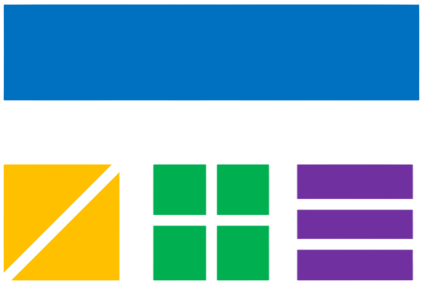Refinance Calculator Information
What is Refinancing?
Refinance Calculator helps you estimate your new monthly payments and total savings when refinancing a loan. Enter your current and new loan details to compare costs and benefits. This tool is ideal for homeowners and borrowers considering a refinance.
Refinancing means replacing your existing loan with a new one, usually to get a lower interest rate, reduce monthly payments, or change the loan term. You can refinance mortgages, auto loans, and more.
- Rate-and-Term Refinance: Change your interest rate, loan term, or both
- Cash-Out Refinance: Borrow more than you owe and take the difference in cash
How Savings Are Calculated
Savings are based on the difference between your current and new loan payments, plus any closing costs. The standard formula for a fixed-rate loan is:
- P = Monthly payment
- L = Loan amount (principal)
- r = Monthly interest rate (annual rate / 12 / 100)
- n = Number of monthly payments (term)
Example: $200,000 loan, 3.5% interest, 25 years
Monthly Payment ≈ $1,001
Benefits of Refinancing
- Lower your interest rate and monthly payment
- Change your loan term to pay off faster or reduce payments
- Access home equity with a cash-out refinance
- Consolidate debt or switch from an adjustable to a fixed rate
- Improve your cash flow with lower payments
- Lock in a fixed rate to avoid future rate increases
When to Consider Refinancing
Refinancing Scenarios
Good Reasons to Refinance
- Interest rates have dropped significantly
- Your credit score has improved
- You want to shorten your loan term
- You need to lower monthly payments
- You want to switch from ARM to fixed rate
When to Avoid Refinancing
- You plan to move soon
- Closing costs exceed savings
- Your credit score has declined
- You're near the end of your loan
- You can't afford the upfront costs
Break-Even Analysis
The break-even point is when your monthly savings equal your closing costs. This helps determine if refinancing is worthwhile:
- Closing Costs = Total fees to refinance
- Monthly Savings = Difference in monthly payments
- Break-Even Months = Time to recover closing costs
Example: $3,000 closing costs, $150 monthly savings
You break even after 20 months
Closing Costs Explained
- Application Fee: $200-$500 for processing your application
- Appraisal Fee: $300-$500 to assess property value
- Title Search: $200-$400 to verify property ownership
- Attorney Fees: $500-$1,000 for legal review
- Recording Fees: $50-$200 for county records
- Points: Optional fees to lower your interest rate
Total closing costs typically range from 2% to 5% of the loan amount.
Tips for Successful Refinancing
- Check your credit score and improve it if possible before applying
- Compare offers from multiple lenders
- Calculate your break-even point (closing costs vs. monthly savings)
- Consider total costs, not just the interest rate
- Negotiate closing costs with your lender
- Lock in your rate to avoid increases during processing
- Gather all required documentation early
- Consider the impact on your taxes
Frequently Asked Questions (FAQ)
Q: When should I refinance?
A: When you can lower your interest rate, reduce payments, or need to change your loan terms. Consider closing costs and break-even time.
Q: Does refinancing hurt my credit?
A: It may cause a small, temporary drop due to a hard inquiry, but can help long-term if you lower your debt.
Q: Can I refinance with bad credit?
A: It's possible, but you may not get the best rates. Improving your credit first is recommended.
Q: What are closing costs?
A: Fees paid to process the new loan, usually 2–5% of the loan amount. Factor these into your savings calculation.
Q: How long does refinancing take?
A: Typically 30-45 days, but can vary based on lender, property type, and market conditions.
Q: Can I refinance if I'm underwater on my loan?
A: Government programs like HARP may help, but options are limited. Consult with a mortgage professional.
Important Disclaimers
Disclaimer: This calculator provides estimates for educational purposes only. Actual refinancing terms and savings may vary significantly based on your specific situation, lender policies, and current market conditions.
Always consult with a mortgage professional, financial advisor, or lender for accurate refinancing information. This calculator does not account for all possible fees, charges, or special circumstances that may apply to your specific situation.
Interest rates and refinancing terms are subject to change. Verify all information with your lender before making refinancing decisions.
